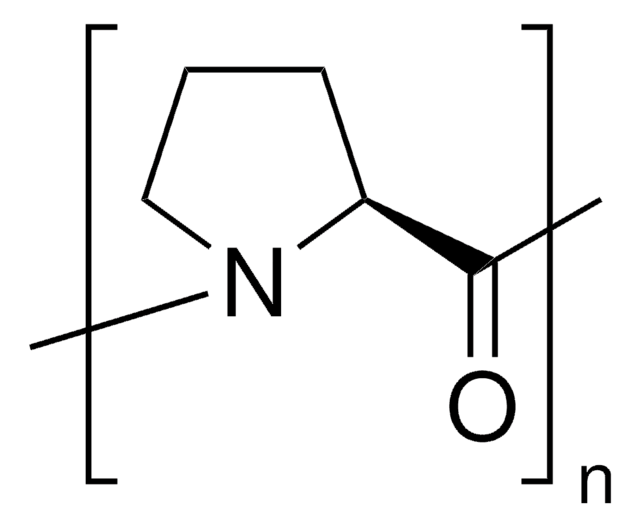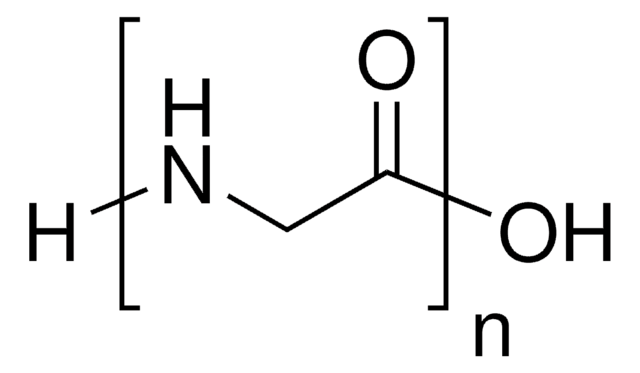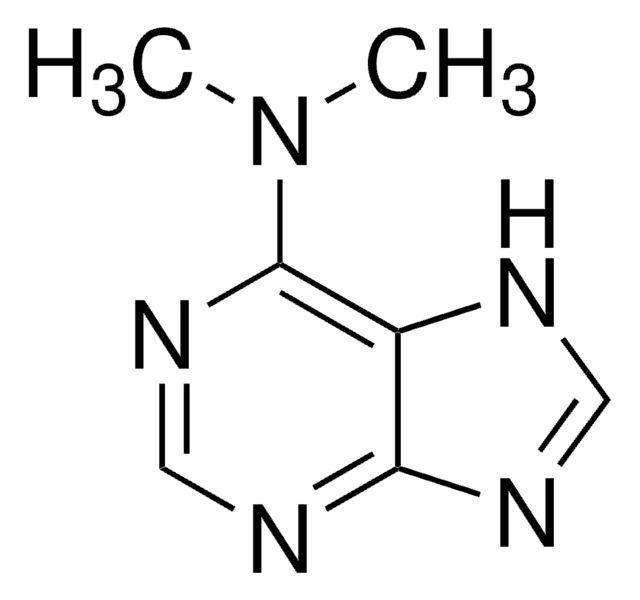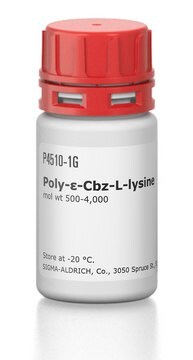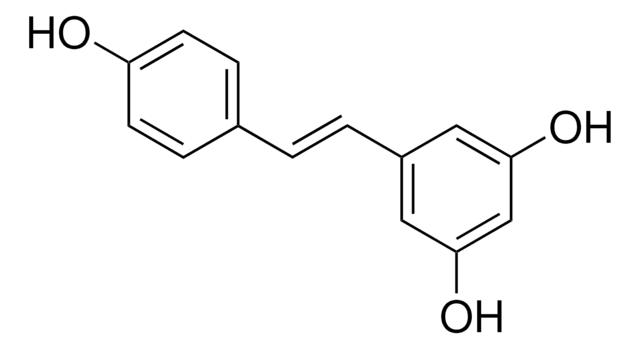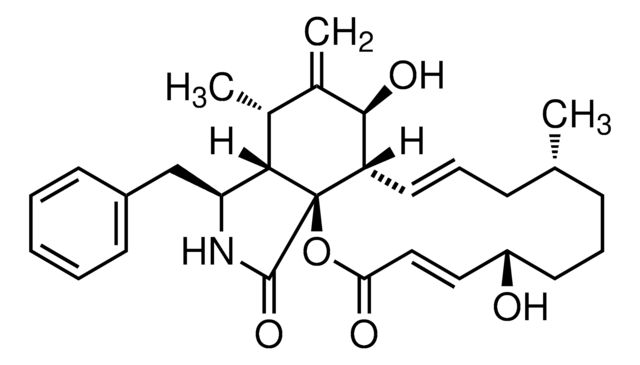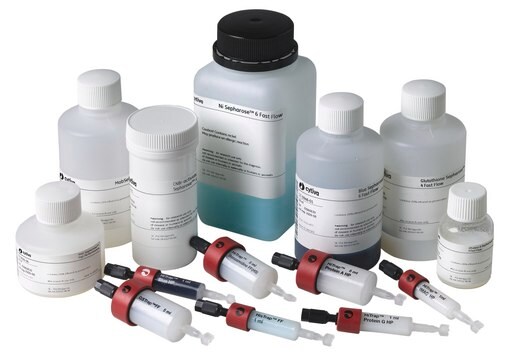P2254
Poly-L-proline
suitable for ligand binding assays, Mol wt 1,000-10,000
Synonym(s):
L-Proline homopolymer
About This Item
Recommended Products
product name
Poly-L-proline, mol wt 1,000-10,000
form
powder
mol wt
1,000-10,000
technique(s)
ligand binding assay: suitable
color
white
storage temp.
−20°C
SMILES string
OC(=O)C1CCCN1
InChI
1S/C5H9NO2/c7-5(8)4-2-1-3-6-4/h4,6H,1-3H2,(H,7,8)
InChI key
ONIBWKKTOPOVIA-UHFFFAOYSA-N
Looking for similar products? Visit Product Comparison Guide
Application
- Highly sensitive and selective electrochemical sensor for simultaneous determination of gallic acid, theophylline and caffeine using poly(l-proline) decorated carbon nanotubes in biological and food samples.: This study presents an innovative electrochemical sensor that utilizes poly-L-proline decorated carbon nanotubes for the simultaneous detection of gallic acid, theophylline, and caffeine. This sensor demonstrates high sensitivity and selectivity, making it suitable for applications in both biological and food samples (Aschemacher NA et al., 2024).
- Water-assisted and protein-initiated fast and controlled ring-opening polymerization of proline N-carboxyanhydride.: This research explores the water-assisted and protein-initiated ring-opening polymerization of proline N-carboxyanhydride, leading to the rapid and controlled synthesis of poly-L-proline. The study highlights the method′s efficiency and potential for producing high-quality poly-L-proline for various applications (Hu Y et al., 2022).
- Phosphorylation of the actin-binding protein profilin2a at S137 modulates bidirectional structural plasticity at dendritic spines.: This study examines the role of poly-L-proline regions in the actin-binding protein profilin2a, specifically focusing on its phosphorylation at S137. The findings reveal how these modifications impact the structural plasticity of dendritic spines, providing insights into neuronal function and plasticity (Cornelius J et al., 2023).
- A structural model of the profilin-formin pacemaker system for actin filament elongation.: This paper presents a structural model involving poly-L-proline regions within the profilin-formin complex, which acts as a pacemaker for actin filament elongation. The study offers a detailed understanding of the molecular mechanisms driving actin dynamics and cellular movement (Schutt CE et al., 2022).
Biochem/physiol Actions
Analysis Note
Other Notes
Storage Class Code
11 - Combustible Solids
WGK
WGK 3
Flash Point(F)
Not applicable
Flash Point(C)
Not applicable
Personal Protective Equipment
Certificates of Analysis (COA)
Search for Certificates of Analysis (COA) by entering the products Lot/Batch Number. Lot and Batch Numbers can be found on a product’s label following the words ‘Lot’ or ‘Batch’.
Already Own This Product?
Find documentation for the products that you have recently purchased in the Document Library.
Customers Also Viewed
Articles
Humankind has utilized protein materials throughout its existence, starting with the use of materials such as wool and silk for warmth and protection from the elements and continuing with the use of recombinant DNA techniques to synthesize proteins with unique and useful properties.
Our team of scientists has experience in all areas of research including Life Science, Material Science, Chemical Synthesis, Chromatography, Analytical and many others.
Contact Technical Service